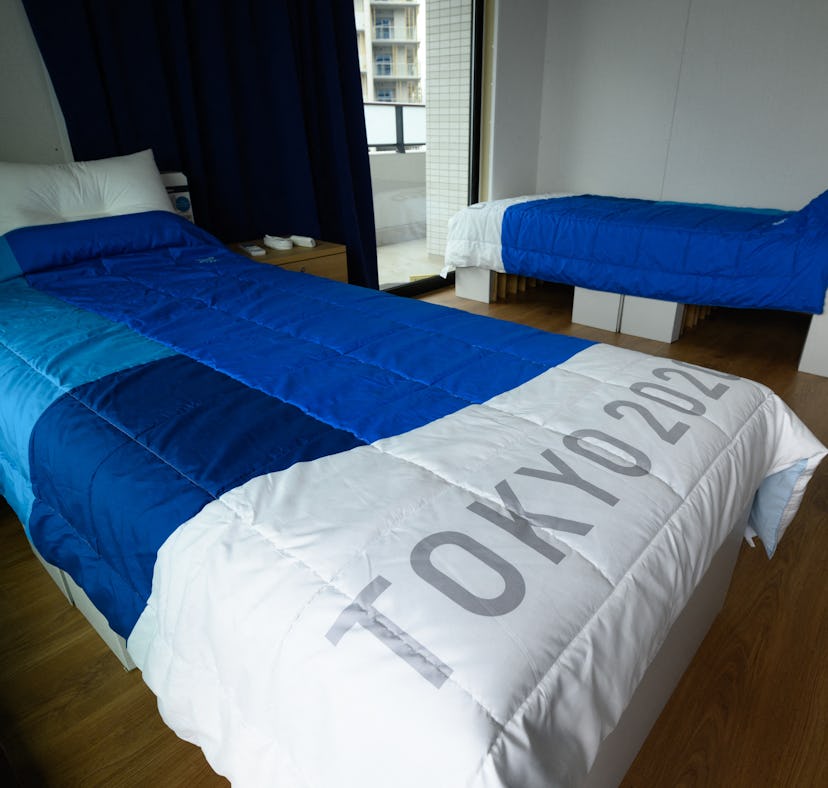
Here's The Deal With The Cardboard "Anti-Sex" Beds At The Olympics
Who knew recyclable beds could cause so much drama?
The Olympic Village is looking a little different this year. For the Tokyo Olympics, the athletes are sleeping on 100% recyclable beds, which prompted a bunch of rumors around, believe it or not, their sex lives. According to Olympic distance runner Paul Chelimo, “Beds to be installed in Tokyo Olympic Village will be made of cardboard, this is aimed at avoiding intimacy among athletes.” Come again?
OK, so there’s actually a lot to unpack here. Although cardboard beds do sound seriously uncomfortable, their purpose doesn’t seem to be to serve as some sort of Olympics-wide chastity belt. And Chelimo’s other claim, that the beds “will be able to withstand the weight of a single person to avoid situations beyond sports” is hard to imagine, considering the various weights and statures of the athletes.
Plus, although these beds might be cardboard, they actually seem pretty sturdy. Irish gymnast Rhys McClenaghan debunked the “anti-sex” theory with a not-so-subtle Twitter video, in which he jumped on his bed to test its strength. “In today’s episode of fake news at the Olympic Games, the beds are meant to be ‘anti-sex.’ They’re made out of cardboard, yes, but apparently they’re meant to break at any sudden movements,” he said. “It’s fake. Fake news.”
Some have also linked the cardboard beds to the ongoing coronavirus pandemic, assuming that the Olympics’ “anti-sex” agenda is a way to curb the spread of the virus. But, again, that theory has been debunked. The recyclable beds were announced pre-COVID. Back in September 2019, Inside The Games reported, "[The beds] will be recycled into paper products after the Games, with the mattress components recycled into new plastic products. This will be the first time in Olympic and Paralympic history that all beds and bedding are made almost entirely from renewable materials."
That being said, there might be some truth to the Games organizers wanting athletes to stick to sports (and not bedsport). Per the New York Post, this year, they are giving out 160,000 condoms to athletes, which, to be fair, sounds like a lot. But, compared to the 2016 Rio Olympics (where they gave out 450,000 condoms), this number is actually really low. Plus, these condoms also came with a message — and it wasn’t just about the merits of safe sex.
“Our intent and goal is not for athletes to use the condoms at the Olympic Village, but to help with awareness by taking them back to their own countries,” the Tokyo Olympics Organizing Committee told Japan Today. Condom souvenirs might not be everyone’s first choice at the airport gift shop, but to each their own!
At the very least, it sounds like the accommodations at Olympic Village are not as “anti-sex” as the rumors would have you believe — cardboard beds and all.